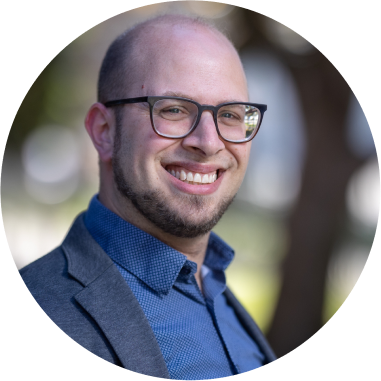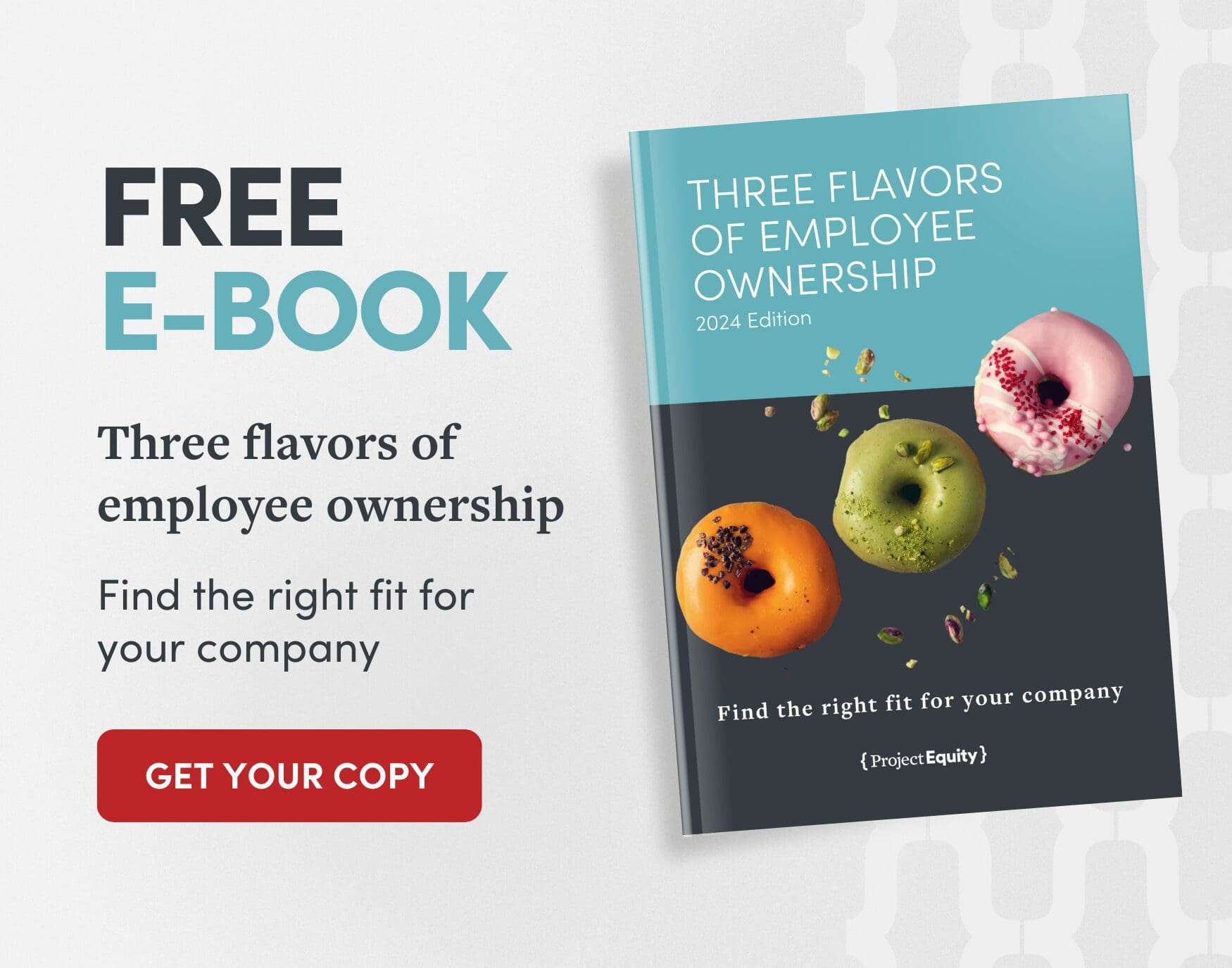Your dollars in action: Happy Earth Cleaning Co-op thrives
- Ben Platt
As a 501(c)3 nonprofit organization, Project Equity relies on grants and donations to power our mission to expand employee ownership (EO) to preserve business legacies, retain jobs and help working people and people of color build long-term wealth.
Philanthropic support makes it all possible. From maintaining a team of expert advisors who guide workers and business owners through EO transitions, to providing educational resources and training across the country, contributions fuel real, lasting change.
And that change doesn’t happen overnight—but the seeds planted today will blossom into thriving businesses, stronger communities and better futures for workers in years to come.
For a perfect example, let’s take a look at the EO journey of Happy Earth Cleaning and how donor contributions make it possible.
With them every step of the way
In 2019, Project Equity was proud to help Happy Earth Cleaning complete their transition to a worker-owned cooperative. Happy Earth Cleaning became the first 100% employee-owned cleaning company in Minneapolis. But their journey toward becoming a cooperative actually began years earlier.
Read Happy Earth’s story or watch the video below to hear directly from their owners about how they decided EO was the right decision for them.
1. Education
Owners Marion and Jesse Dunbar had been interested in EO since the early days of their business—but they weren’t sure which model to pursue or how to get started. That changed in 2017, when they had the chance to learn about cooperative development through the City of Minneapolis Cooperative Technical Assistance Program (CTAP). Programs like CTAP, funded by local city and county governments, are crucial. They provide the early education and resources that can put businesses on the path to EO.
2. Consultation
Happy Earth Cleaning was first referred to Project Equity in 2018 by Nexus Community Partners, a local organization which we partnered with to build their capacity to help businesses transition to cooperatives in Minneapolis and St. Paul. Our business development team is able to provide initial consultations at no cost to business owners like Marion and Jesse—eliminating a major barrier and making EO more accessible to small businesses—thanks to philanthropic contributions.
As we work to scale EO nationwide, building a strong network of regional service providers like Nexus Community Partners is essential. These partners serve not only as trusted referral sources, but as local experts who guide businesses through the EO journey. Your support helps fund these partnerships—laying the groundwork for a sustainable, community-rooted EO ecosystem across the country.
3. Feasibility study
Happy Earth Cleaning’s next step was to contract for a feasibility study with Project Equity in partnership with Nexus. Over several months, our trained experts on the client services team worked closely with the business owners to examine the company’s finances and operations. This in-depth process helped determine whether the business was truly ready to make the move to EO and gave everyone involved the confidence to move forward.
These critical feasibility studies are both comprehensive and cost-effective. While we do charge a fee, we offer a sliding scale to ensure the cost is never a barrier—something made possible by philanthropic support. In Happy Earth’s case, a CTAP grant also helped subsidize the study.
And they’re not alone—we’ve also helped other businesses secure similar grants, including funding through the City of Berkeley. These kinds of resources and programs are unlocked through the work of our ecosystem development team, which builds relationships with municipalities across the country.
4. Transition & Thrive
Project Equity’s Director of Client Services, David Gray, likes to say, “When you’ve done one cooperative transition, you’ve done… one cooperative transition.” While the broad strokes may be the same, the details of the process are as unique as the businesses themselves.
Here’s what that process typically includes:
- Designing a transaction structure that meets the needs of all parties.
- Supporting owners as they decide what role, if any, they’ll have post-sale.
- Educating employees on governance, leadership and financial literacy.
- Guiding the employee team in shaping the structure, bylaws and operations of their future employee-owned entity.
And that’s just the beginning.
After completing their transition in December 2019—following a 12-month process, which is typical—Happy Earth entered our Thrive program. Through Thrive, we contract for two years of post-transition support, helping the new employee-owners build a strong culture of ownership. We’re there as they bring to life the values and decisions made during the transition.
5. Access to capital
As part of the transition process, we helped Happy Earth obtain financing for the sale through our Accelerate Employee Ownership initiative, in partnership with Shared Capital Cooperative.
We’re intentional about how we structure transactions: ensuring the selling owners’ needs are met, the business remains financially healthy and not overburdened by debt, and—critically—that the cost of buying the business never falls on the workers. Our capital initiatives are key to making this possible.
They also serve as proof points for traditional lenders, showing how they can finance EO transitions and serve employee-owned businesses. This work requires deep in-house financial expertise and strong partnerships—both made possible by philanthropic support.
6. Impact measurement
We stayed in touch with Happy Earth and collected annual data through our Impact Measurement & Management (IMM) program, which was launched in 2021 and is empowered by philanthropic contributions. Through IMM, we track a range of metrics and stories that yield valuable insights into the economic benefits of EO for workers and how it changes lives.
Happy Earth has shared metrics such as:
- From 2022-2024, the median hourly wage increased by 12.3% for employees, annual revenue grew by 50%, and net income had a 100% increase.
- A previously eliminated SIMPLE IRA program was reinstated since transitioning to EO—in addition to adding full coverage dental, disability and life insurance.
- In 2024, the company distributed $23,625 in patronage to their 18 worker-owners—about $1,300 each on average—demonstrating the long-term wealth-building strategy of EO.
- Annual staff turnover has decreased significantly. In 2024, it was just 30%, compared to the cleaning industry average of 200%.
We’ve also collected recent stories from worker-owners about the impact of patronage and of being employee-owned:
You make it possible
Your grant dollars and donations fuel the wide spectrum of programs and services Project Equity provides that keep small businesses like Happy Earth intact and provide real, tangible benefits to workers. Thank you for giving.
Interested in more stories of real businesses that have made the transition to EO? Check out our client impact report or these ownership stories—and stay tuned for more!
About the author
As part of Project Equity’s development team, Ben supports the organization by spearheading grant requests and reporting, and crafting other written collateral to share the impact of our work with funders across the nation. Ben received his BA in English from Wesleyan University. When he’s not working, Ben loves food, travel, and exploring the Bay Area’s many parks and playgrounds with his family.



